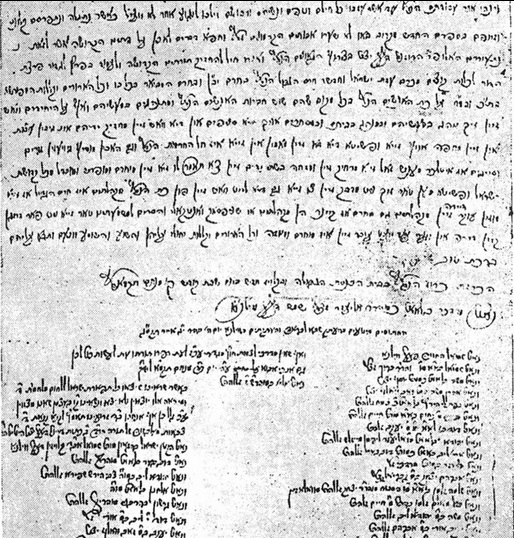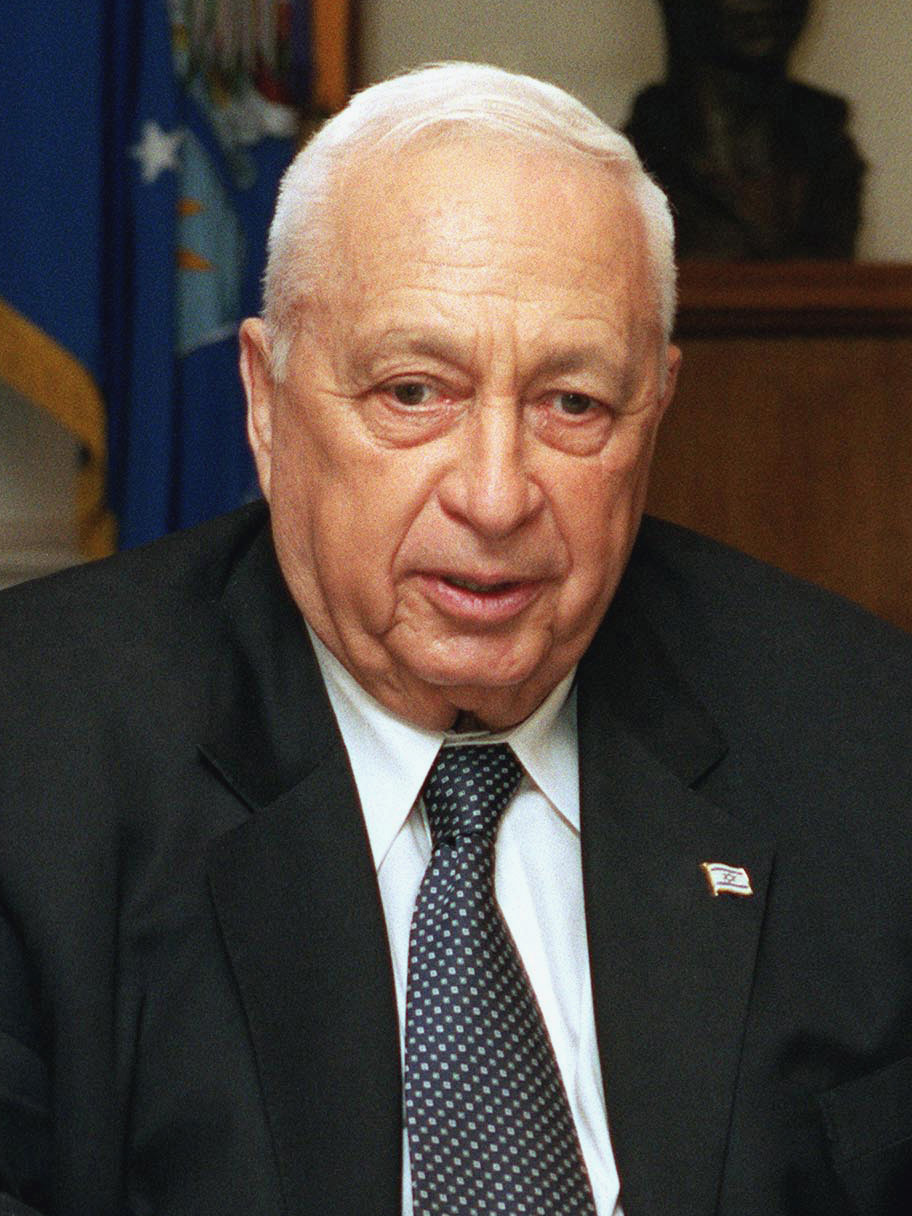|
Degel HaTorah
Degel HaTorah ( he, דגל התורה, , Banner of the Torah) is an Ashkenazi Haredi political party in Israel. For much of its existence, it has been allied with Agudat Yisrael, under the name United Torah Judaism. History Degel HaTorah was founded in 1988, as a splinter from Agudat Israel. Its establishment by Rabbi Elazar Shach was due to ongoing policy disputes with the Hasidic rabbis within Agudat Yisrael. In the 1988 elections, the party won two seats, taken by Avraham Ravitz and Moshe Gafni, and joined Yitzhak Shamir's coalition government. For the 1992 elections, the party allied itself with Agudat Yisrael, under the name United Torah Judaism. Although the party split shortly before the 1996 elections, they re-united for the elections. This was repeated for the 1999, 2006, and 2009 elections. Currently (2021), the party has three MKs (of the seven representing United Torah Judaism): Moshe Gafni, Ya'akov Asher, and Yitzhak Pindros. Ideology Degel Ha ... [...More Info...] [...Related Items...] OR: [Wikipedia] [Google] [Baidu] |
Moshe Gafni
Moshe Gafni ( he, מֹשֶׁה גַּפְנִי, born 5 May 1952) is an Israeli politician, Member of the Knesset, and leader of the Ashkenazi Haredi party United Torah Judaism. Early life Born in Tel Aviv, Gafni was educated in a yeshiva, and later moved to and worked as head of a Kollel in Ofakim. He lives in Bnei Brak, is married, and has three children. Political career He was first elected to the Knesset on Degel HaTorah's list in 1988, and was appointed Deputy Minister of Religious Affairs in Yitzhak Shamir's government in 1990. For the 1992 elections, the party joined Agudat Yisrael in forming an alliance called United Torah Judaism, which won four seats. Although he initially lost his seat, Gafni entered the Knesset in 1994 as part of a rotation agreement between the two factions. A similar arrangement operated after the 1996 elections, with Gafni taking the seat for the first half of the session (i. e., until 1998). Early elections in 1999 meant that Gafni re-appeare ... [...More Info...] [...Related Items...] OR: [Wikipedia] [Google] [Baidu] |
1988 Israeli Legislative Election
Elections for the 12th Knesset were held in Israel on 1 November 1988. Voter turnout was 79.7%.Dieter Nohlen, Florian Grotz & Christof Hartmann (2001) ''Elections in Asia: A data handbook, Volume I'', p127 Parliament factions The table below lists the parliamentary factions represented in the 11th Knesset. Results Aftermath Likud's Yitzhak Shamir formed the twenty-third government on 22 December 1988, including the Alignment, the National Religious Party, Shas, Agudat Yisrael and Degel HaTorah in his coalition, with 25 ministers. In 1990 Shimon Peres tried to form an Alignment-led coalition in a move that became known as " the dirty trick", but failed to win sufficient support. Eventually Shamir formed the twenty-fourth government on 11 June 1990, with a coalition encompassing Likud, the National Religious Party, Shas, Agudat Yisrael, Degel HaTorah, the New Liberal Party, Tehiya, Tzomet, Moledet, Unity for Peace and Immigration and Geulat Yisrael. Tehiya, Tzomet and Moled ... [...More Info...] [...Related Items...] OR: [Wikipedia] [Google] [Baidu] |
Mitnagdim
''Misnagdim'' (, "Opponents"; Sephardi pronunciation: ''Mitnagdim''; singular ''misnaged''/''mitnaged'') was a religious movement among the Jews of Eastern Europe which resisted the rise of Hasidism in the 18th and 19th centuries. The ''Misnagdim'' were particularly concentrated in Lithuania, where Vilnius served as the bastion of the movement, but anti-Hasidic activity was undertaken by the establishment in many locales. The most severe clashes between the factions took place in the latter third of the 18th century; the failure to contain Hasidism led the ''Misnagdim'' to develop distinct religious philosophies and communal institutions, which were not merely a perpetuation of the old status quo but often innovative. The most notable results of these efforts, pioneered by Chaim of Volozhin and continued by his disciples, were the modern, independent ''yeshiva'' and the Musar movement. Since the late 19th century, tensions with the Hasidim largely subsided, and the heirs of ... [...More Info...] [...Related Items...] OR: [Wikipedia] [Google] [Baidu] |
Lithuanian Jews
Lithuanian Jews or Litvaks () are Jews with roots in the territory of the former Grand Duchy of Lithuania (covering present-day Lithuania, Belarus, Latvia, the northeastern Suwałki Region, Suwałki and Białystok regions of Poland, as well as adjacent areas of modern-day Russia and Ukraine). The term is sometimes used to cover all Haredi Jews who follow a "Lithuanian Yiddish, Lithuanian" (Ashkenazi Jews, Ashkenazi, non-Hasidic Judaism, Hasidic) style of life and learning, whatever their ethnic background. The area where Lithuanian Jews lived is referred to in Yiddish as , hence the Hebrew term (). No other famous Jew is more closely linked to a specifically Lithuanian city than Vilna Gaon (in Yiddish, "the genius of Vilna"). Rabbi Elijah ben Solomon Zalman (1720–1797) to give his rarely used full name, helped make Vilna (modern-day Vilnius) a world center for Talmudic learning. Chaim Grade (1910–1982) was born in Vilna, the city about which he would write. The inter-war ... [...More Info...] [...Related Items...] OR: [Wikipedia] [Google] [Baidu] |
Yitzhak Pindros
Yitzhak Ze'ev Pindrus ( he, יִצְחָק זְאֵב פִּינְדְרוֹס, born 20 July 1971) is an Israeli politician currently serving as a member of the Knesset for United Torah Judaism. Biography Pindrus is the eldest son of American immigrants Moshe and Zelda, who moved to Israel and settled in Jerusalem. He attended Yeshivat Aderet Eliyahu, before marrying at the age of 19 and moving to the Beitar Illit settlement. Between 1991 and 1996 he worked as an advisor to Moshe Leibovitz, the head of Beitar Illit local council, before being elected deputy leader of the council in 1996 on behalf of Degel HaTorah. In 2001 Pindrus ran for mayor of Beitar Illit, unseating the incumbent mayor Yehuda Gerlitz. Pindrus won by just 162 votes after he received 2,688 votes to Gerlitz's 2,526. In 2007, Pindrus lost the mayoral election to Meir Rubinstein. After his election defeat as mayor of Beitar Illit, Pindrus moved back to the Old City of Jerusalem, where he lives with his wife ... [...More Info...] [...Related Items...] OR: [Wikipedia] [Google] [Baidu] |
Ya'akov Asher
Ya'akov Asher ( he, יַעֲקֹב אָשֵׁר; born 2 July 1965) is an Israeli Haredi rabbi and politician who currently serves as a member of the Knesset for the United Torah Judaism alliance. A member of the Degel HaTorah party, he previously served as a member of the Knesset between 2013 and 2015, and was also the thirteenth mayor of Bnei Brak, having taken office in 2008. Biography Ya'akov Asher was born and raised in Ramat Gan. He served in the Israel Defense Forces. Asher is married, with seven children.Meet the MK: Ya'acov Asher The Jerusalem Post, 10 February 2013 Political career Asher ran for mayor of , but lost to Tzuriel Krispel. He became mayor of Bnei Brak in ...[...More Info...] [...Related Items...] OR: [Wikipedia] [Google] [Baidu] |
Member Of Knesset
Lists of Knesset members cover members of the Knesset of Israel. They are organized by session, by ethnicity and by position. By session * List of members of the first Knesset (1949–51) * List of members of the second Knesset (1951–55) * List of members of the third Knesset (1955–59) * List of members of the fourth Knesset (1959–61) * List of members of the fifth Knesset (1961–65) * List of members of the sixth Knesset (1965–69) * List of members of the seventh Knesset (1969–74) * List of members of the eighth Knesset (1974–77) * List of members of the ninth Knesset (1977–81) * List of members of the tenth Knesset (1981–84) * List of members of the eleventh Knesset (1984–88) * List of members of the twelfth Knesset (1988–92) * List of members of the thirteenth Knesset (1992–96) * List of members of the fourteenth Knesset (1996–99) * List of members of the fifteenth Knesset (1999–2003) * List of members of the sixteenth Knesset (2003–06) * Li ... [...More Info...] [...Related Items...] OR: [Wikipedia] [Google] [Baidu] |
2009 Israeli Legislative Election
9 (nine) is the natural number following and preceding . Evolution of the Arabic digit In the beginning, various Indians wrote a digit 9 similar in shape to the modern closing question mark without the bottom dot. The Kshatrapa, Andhra and Gupta started curving the bottom vertical line coming up with a -look-alike. The Nagari continued the bottom stroke to make a circle and enclose the 3-look-alike, in much the same way that the sign @ encircles a lowercase ''a''. As time went on, the enclosing circle became bigger and its line continued beyond the circle downwards, as the 3-look-alike became smaller. Soon, all that was left of the 3-look-alike was a squiggle. The Arabs simply connected that squiggle to the downward stroke at the middle and subsequent European change was purely cosmetic. While the shape of the glyph for the digit 9 has an ascender in most modern typefaces, in typefaces with text figures the character usually has a descender, as, for example, in . The mo ... [...More Info...] [...Related Items...] OR: [Wikipedia] [Google] [Baidu] |
2006 Israeli Legislative Election
Elections for the 17th Knesset were held in Israel on 28 March 2006. The voting resulted in a plurality of seats for the then-new Kadima party, followed by the Labor Party, and a major loss for the Likud party. After the election, the government was formed by the Kadima, Labor, Shas, and Gil parties, with the Yisrael Beiteinu party joining the government later. The Prime Minister was Ehud Olmert, leader of Kadima, who had been the acting prime minister going into the election. Background 2003 election and later developments In the 2003 elections, Likud, under the leadership of Prime Minister Ariel Sharon, achieved a convincing win by Israeli standards, winning 38 seats in the 120-member Knesset (parliament), with Sharon perceived as tough anti-terrorist leader on the wings of his 2002 Operation Defensive Shield. Labor, led by Amram Mitzna under slogans for "disengagement" from Gaza, won only 19 seats and did not initially join the new government. Following the 2003 election ... [...More Info...] [...Related Items...] OR: [Wikipedia] [Google] [Baidu] |
1999 Israeli Legislative Election
Early general elections for both the Prime Minister and the Knesset were held in Israel on 17 May 1999 following a vote of no confidence in the government; the incumbent Likud Prime Minister Benjamin Netanyahu, ran for re-election. This election was only the second time in Israeli history an election had been held for the Prime Minister's post in addition to elections for the Knesset. The first such election, in 1996 had been an extremely tight contest between Likud's Benjamin Netanyahu on the right, and Labor's Shimon Peres on the left; the right had won by less than one percent (about 29,000 votes). Ehud Barak, promising to storm the citadels of peace regarding negotiations with the Palestinians and withdraw from Lebanon by July 2000, ADL won the election in a landslide victory. ...
|
1996 Israeli Legislative Election
General elections were held in Israel on 29 May 1996. For the first time, the prime minister was elected on a separate ballot from the remaining members of the Knesset. The elections for Prime Minister resulted in a surprise victory for Benjamin Netanyahu, by a margin of 29,457 votes, less than 1% of the total number of votes cast, and much smaller than the number of spoiled votes. This came after the initial exit polls had predicted a Shimon Peres win, spawning the phrase "went to sleep with Peres, woke up with Netanyahu". Although Peres lost the prime ministerial vote – his fourth and last defeat as Labor leader – Labor emerged as the largest party in the Knesset, winning two more seats than the Likud– Gesher– Tzomet alliance. Background Peace process On 13 September 1993, Israel and the Palestine Liberation Organization (PLO) signed the Oslo Accords (a Declaration of Principles) on the South Lawn of the White House. The principles established objectives relating ... [...More Info...] [...Related Items...] OR: [Wikipedia] [Google] [Baidu] |

.jpg)


_-_Likud_Party.jpg)

